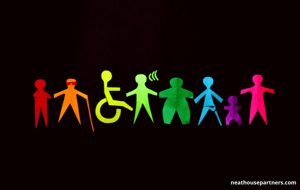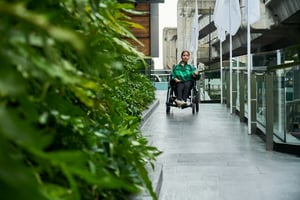Discrimination When Providing A Service
Neathouse Partners discuss the case of Lee v Ashers following the Supreme Court ruling about Direct Discrimination when providing a service.
James Rowland
Commercial Director James leads Account Management, Sales and Marketing at Neathouse Partners.Date
12 October 2018Updated
20 March 2024Table of contents
Related articles
Tags
The Case Law - Lee v Ashers’ Baking Company Ltd
In May 2014, Mr Lee placed an order for a cake intended for the campaign surrounding same-sex marriage in Northern Ireland.
The request was for the cake to be decorated with the cartoon characters ‘Bert and Ernie’ and with the message ‘Support Gay Marriage’.
Mr and Mrs McArthur initially placed the order, but as Christians, they decided that they could not complete the request due to their beliefs and Mr Lee was given a refund.
Subsequently, Mr Lee took the case to a tribunal.
The County Court Decision
The case was brought to the Northern Ireland County Court where Mr Lee stated that he had been directly discriminated against by Ashers’ bakery because he was a gay man.
The County Court found in favour of Mr Lee, and that discrimination had been present on the following grounds:
- Mr Lee’s sexuality; contrary to the Equality Act (Sexual Orientation) Regulations (Northern Ireland) 2006:
- His religious or political beliefs; contrary to the Fair Employment and Treatment (Northern Ireland) Order 1998 (FETO).
The first appeal application was made to the Court of Appeal where the McArthurs’ argued that the grounds for the decision (above) were not compatible with their rights under the European Convention of Human Rights (ECHR).
This request for an appeal request rejected. Mr and Mrs McArthur made a further application to the Supreme Court, where an appeal was granted.The Outcome Of The Supreme Court Appeal
The Supreme Court held that Mr and Mrs McArthur did not discriminate against Mr Lee where Lady Hale gave a judgment on the discrimination grounds that were initially stated and addressed the issue raised by the McArthurs regarding the impact of their human rights.
Reasons For The Supreme Court Decision
1) Mr Lee’s Sexual Orientation
Lady Hale held that the refusal to provide the order for the cake was not because of Mr Lee’s sexual orientation, but it was because of the message.
The conscious decision not to complete the request was contrary to Mr and Mrs McArthur’s beliefs, however, the request for a cake to display a message ‘Support Gay Marriage’ is not indicative of any particular orientation as many people have the same belief. It does not determine that the person placing the order has a certain sexuality.2) Political Beliefs
Similarly, the objection by Mr and Mrs Arthur was not due to Mr Lee’s beliefs.
It was held that the service they were asked to provide would be used to promote a specific political viewpoint that the owners of Asher’s bakery did not share.
With the bakery was being used as a voice for a stance on same-sex marriage. Therefore, Lady Hale determined that it would be necessary to consider the human rights of Mr and Mrs McArthur.3) Impact of Mr and Mrs McArthur’s Human Rights.
The refusal to provide the service to Mr Lee was not because he was a gay man, but because the message was a belief that the McArthur’s strongly disagreed with.
The McArthur’s argued that they had a human right to the freedom of thought, conscience and religion.
They also had the right to freedom of expression. Compelling them to complete the original order would have been a direct impact/breach of their rights to their thoughts and religion.Lady Hale stated that the law should not have been ready in a way where this would be the case without there being significant justification.
Lord Mance explained that the Court of Appeal had been wrong to reject the appeal by stating that the grounds for the case had been concluded during the County Court trial and that there is an exception that permits an appeal where the case involves any questions surrounding the validity of the measures of the Northern Ireland Assembly.
Lord Mance stated that FETO was the measure in question as using it failed to protect the MacArthur’s rights.
Discrimination
Discrimination occurs when a person is treated less favourably than another due to a personal characteristic that is protected under the Equality Act 2010.
This would include;1) Gender2) Race3) Religion or belief4) Sex5) Sexual orientation6) Pregnancy and maternity.
Association and Perception Discrimination
Associative discrimination occurs when a person does not have the protected characteristic, but they are subject to discrimination because they are associated with someone who does.
Whereas perceptive discrimination would be against a person, who has been subject to discrimination because others believe they have one of the protected characteristics.
Related blog posts

Disability Discrimination

Direct Vs Indirect Discrimination In The Workplace

How To Comply With The Duty To Make Reasonable Adjustments
Have questions?
Get in touch today
Contact us, and our team will get back to you within 24 hours. We value your questions and are committed to getting them answered quickly.


Hello! I am Nicky
Just fill in the form below with your details, and I will arrange for a member of our team to give you a call.
By clicking, you agree to our Privacy Policy




